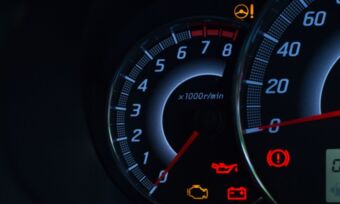KEY POINTS
- A dash cam is a small camera that attaches to a vehicle’s dashboard or windscreen.
- Using a dash cam in your vehicle will generally not lead to being offered discounts by your car insurance provider.
- Dashcams can be used to collect video and sometimes audio evidence which may prove beneficial during the claims process.
What is a dash cam?
A dashboard camera or ‘dash cam’ is a small camera which attaches to either a vehicle’s dashboard or windscreen and records continuous video of the road ahead while the vehicle is in use. Some dash cams also capture audio, while others can be used to record out of the rear window of the vehicle as well. Dash cams can be useful for documenting road incidents such as accidents and can often be used to provide evidence for car insurance claims or legal proceedings.
Can dashcams help you lower the cost of car insurance?
Insurers use several factors when determining car insurance premiums, such as your age and gender, the make and model of your vehicle, how you use the vehicle and where you live. Having a dash cam is generally not a factor that is considered by insurers.
Canstar Research obtained quotes from a range of car insurance providers and found that only one provider asked whether a dash cam was present in the vehicle during the quoting process. This suggests that most Australian insurers don’t currently offer premium reductions or discounts for the installation or use of dash cams. This may be due to dash cams not necessarily providing any reduction in the risk of something unexpected happening that could lead to a claim.
That being said, dashcams can often help drivers during the claims process—if they have managed to capture footage of the incident occurring. If they can prove they were not at fault for an accident, they may be able to avoid having to pay an excess.
Will insurers accept dash cam footage?
Yes, car insurers typically welcome dash cam footage, as it can help their assessors determine the cause of an incident and who was at fault. In fact, the footage may help a not-at-fault driver keep their no-claim bonus/discount and avoid having to pay an excess.
Can dash cam footage help you with your car insurance claim?
Yes, dash cam footage can be helpful in regards to information and evidence gathering following a car accident, particularly if it records the time, speed, location and direction of travel on video.
It’s still necessary, however, to get the details of the other people involved, such as their names, contact information and car registration, as well as any eyewitness accounts. If it’s safe to do so, you may also be able to take photos and videos of the accident scene.
It’s important to note that dash cam footage alone won’t necessarily prove who was at fault in an accident, but police and insurance providers could potentially use the vision to conduct independent investigations to find the cause of a collision.
Is having a dash cam installed in your vehicle considered to be a ‘modification’ by your insurer?
According to the Royal Automobile Club of Queensland (RACQ), having a dash cam installed is not considered a modification to your car, but it’s still worthwhile telling the insurer if you have one.
While it may differ by insurer, RACQ classifies a modification as any changes, alterations or additions to your vehicle that are not part of the manufacturer’s standard specifications and which enhance the performance or alter the safety or handling of the vehicle. An example of this could be alterations or additions that increase engine output or modify body structure, suspension or wheels. Vehicles modified in such ways could potentially attract higher car insurance premiums or affect the driver’s cover, but this generally won’t be the case for dash cams.
It may be worth telling your insurance provider that you have a dash cam in the vehicle, to ensure it’s covered if the vehicle is broken into or stolen. This could be useful for drivers that have comprehensive or Third Party Fire and Theft policies.
In deciding whether to purchase a dash cam for your car, you may want to consider whether it’s the right option for you, such as by weighing up the cost of the device itself against any potential claims related time savings it may provide.
Compare car insurance policies
If you’re comparing car insurance policies, the comparison table below displays some of the policies currently available on Canstar for a 30-39 year old male seeking comprehensive cover in NSW without cover for an extra driver under 25. Please note the table is sorted by Canstar Star Rating (highest to lowest) followed by provider name (alphabetical) and features links direct to the providers’ websites. Consider the Product Disclosure Statement (PDS) and Target Market Determination (TMD), before making a purchase decision. Contact the product issuer directly for a copy of the PDS and TMD. Use Canstar’s car insurance comparison selector to view a wider range of policies. Canstar may earn a fee for referrals
Cover image source: myphotobank.com.au/Shutterstock.com








